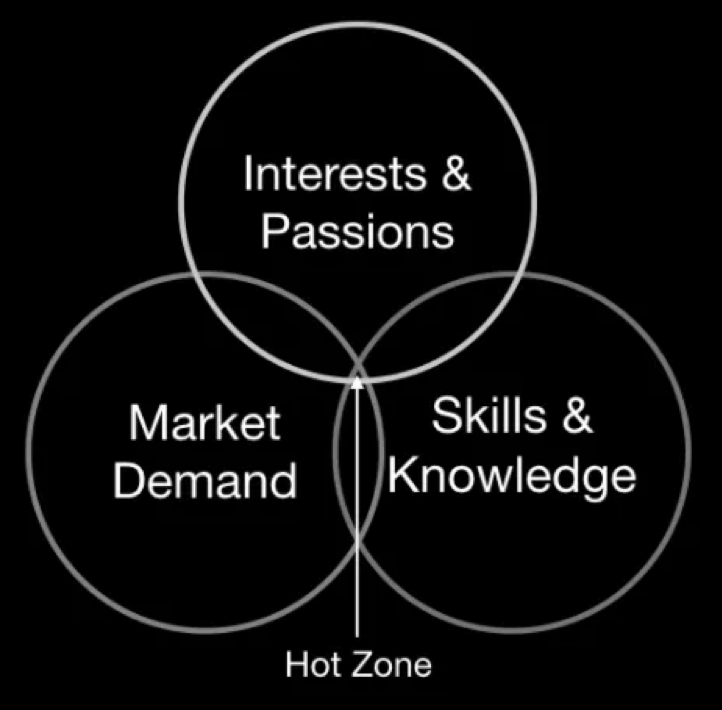William grew up in a small town in Scotland.
He had a passion for playing the bagpipes and was quite talented at it.
So much so that at the age of 17, he got a gig playing bagpipes on a boat headed to America to pursue his passion.
He stayed with that boat for a year or so, touring and playing bagpipes.
Afterwards, he became a citizen of the land of opportunity.
It was the place to follow his passion.
Then World War II came along, and he enlisted in the Army.
Although prepared to go overseas and fight, they instead put him in charge of training and leading the Army’s pipe band.
This led to a chance to train, compete, and teach at the World Expo in San Francisco.
He eventually left the army, got married and started a family.
But everywhere he went, there was a sense of restlessness about him.
He felt a constant burning need to pursue his passion, believing something big would eventually come his way.
His family moved from town to country to continent as he pursued opportunities of all sorts, only to be disappointed again and again.
This continued for many years, and his children went to many schools.
They would be at a new school for a month or two only to find him restless, and off they went once again.
At the end of his life, the piper felt he had lived a good one.
But he lived most of it in poverty, and mostly at the expense of his family.
Worse, William never really found what he was looking for.
A Lesson In Entrepreneurship from the Shark Tank

This story probably sounds like little more than a parable.
But in fact, this 100% true story was relayed to me by a colleague who just happens to be the grandson of the late William in the story.
As he told it, tears welled up in his eyes and his voice cracked.
Two generations on, it was still painful.
And I couldn’t help but think of all the clients I talk to who are dead set on following their passion at the expense of everything else in their life.
Sadly, it’s a tale that repeats itself over and over again.
Anyone who’s ever watched the popular TV show, Shark Tank, knows this to be true.
Wannabe entrepreneurs pitch their idea to the Sharks, hoping one of these multi-million or multi-billion-dollar entrepreneurs will invest in their idea.
Many times, the Sharks give them some cold, hard advice instead.
“Stop what you’re doing, it’s not going to work. Cut your losses now and find something that will.”
Sometimes, these stubborn entrepreneurs leave the show more committed than ever.
They pursue their passion with reckless abandon.
They think, “If I just stick it out eventually it’s going to work.”
“Someday I’ll hit it big, and prove these stupid Sharks wrong!”
Meanwhile their life implodes around them.
Their family, their relationships, their health. It all takes a back seat to the passion.
Now don’t get me wrong. There’s a lot to be said for hard work and persistence. Both are necessary ingredients for success.
It’s also good to be wholly and ruthlessly committed to pursuing a passion.
But only IF it makes sense.
In other words, you’ve got to make damn sure the passion that’s calling you is not a Siren’s song luring you into the rocks of a shattered life.
That said, here’s a great little technique to help you avoid that fate.
Passion + Skill + Demand = Success

The ways and means to research a market could fill an entire course.
In fact, you’ll find a complete module on it in your Fellowship Fortune In A Box training program, which you get as a member of EMAIL ALCHEMY “ELITE.”
If you’d like more details on membership, apply for a free strategy session.
For now, let’s take a look at one of my favorite methods that you can use immediately to discover the right market for you.
A market you not only love, but that will sustain you financially.
So here’s how this method looks in action…
Start by drawing a Venn diagram on a piece of paper.
A Venn diagram is simply three circles, connected or overlapping in the middle.
You’ll fill these three circles by answering a series of “what” questions.
The FIRST circle represents your passions and interests.
What do you love talking about more than anything?
What would you read, listen to, and watch videos on (and continue to be interested in and intrigued by) even if you never made a dime doing it?
What activity soothes your soul so deeply, you often lose track of time?
What would you consider a “labor of love” if it’s all you had to work on each day?
The SECOND circle represents your skill and knowledge areas.
What areas have you already developed some level of skill in?
What have you already learned in your workaday life, or by attending seminars or workshops, college classes, or some form of professional development?
What subject would you love to study and learn more about?
What subject would you be willing to develop the level of mastery in that’s required to create a profitable business as an expert?
The THIRD circle represents market demand.
What markets have fast-growing opportunities and potential for long term growth?
What markets have a high income potential where people are already paying for information, services, and products?
When You Find Yourself At the Intersection of Passion, Skill, and Demand …

The middle area, where these circles overlap, is your “HOT ZONE.”
Here’s what this diagram means in simple terms:
Where your passions and interests intersect with your top skills and knowledge areas, in a market with some measure of demand, therein lies your Hot Zone.
Bottom line: You want to find a market you’re passionate about building a business in, but you also want to be realistic about its potential success.
Many newbie entrepreneurs have the misconception that to be successful, you’ve got to find a new market no one has ever sold a product in before.
They do a search and think, “Wow, nobody else is doing this… I’ll be the first!”
In all but the most rare case, that will lead you down a disastrous path.
If your ultimate goal is to build a profitable business that will support you financially, then you only want to enter a market where people are already spending money.
It’s highly unlikely you’ll find a profitable market in this day and age that hasn’t already been tapped by someone.
If no one is selling in a market, it’s probably because there aren’t enough buying.
So follow the breadcrumbs of those who’ve come before you.
Don’t try to reinvent the wheel.
Research your market thoroughly… choose wisely… and create a superior product or program that’s better than anything else out there.
Once you’ve got a success under your belt, then you can afford to be a pioneer!
Leave a Reply